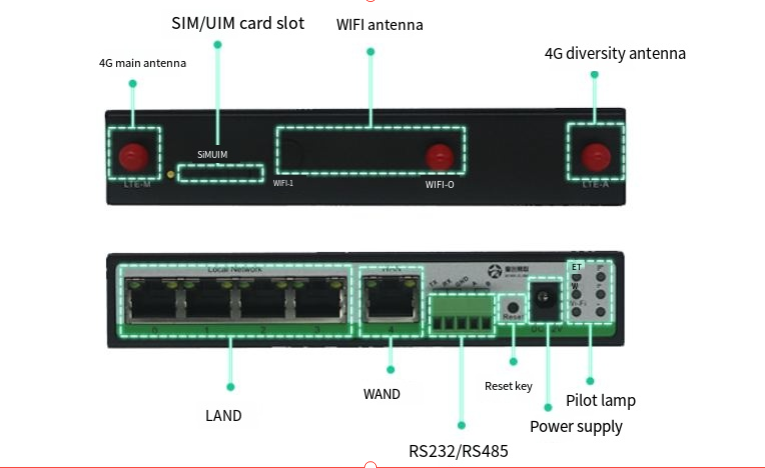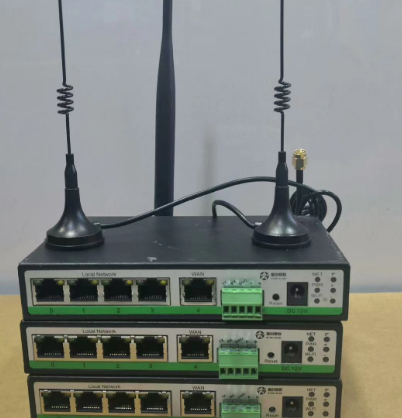 In the industrial-grade router SR600, Flash storage plays a core role, directly affecting the device’s performance and reliability. This article will focus on analyzing several key functions of Flash storage in the SR600.
In the industrial-grade router SR600, Flash storage plays a core role, directly affecting the device’s performance and reliability. This article will focus on analyzing several key functions of Flash storage in the SR600.
1. Storing the Operating System
SR600 uses the Linux OpenWrt system, a lightweight operating system designed for embedded devices. According to the technical specifications, SR600 is equipped with 16MB of Flash storage (expandable to 32MB), which provides ample space for storing the operating system.
The high-speed read characteristic of Flash storage enables SR600 to boot up quickly. In industrial environments where devices may need frequent restarts or quick recovery, this feature of Flash storage is particularly important, significantly reducing system boot time.
 2. Saving Configuration Information
2. Saving Configuration Information
As a multifunctional industrial-grade router, SR600 needs to store a large amount of configuration information, including:
– 4G LTE network settings
– Ethernet interface configuration (1 WAN port and 4 LAN ports)
– Wi-Fi settings (if 2.4G Wi-Fi function is enabled)
– VPN configuration (supporting multiple VPN protocols such as PPTP, L2TP, IPSEC, OPENVPN, GRE)
– Security policies and firewall rules
The non-volatile nature of Flash storage ensures that these critical configurations are not lost after power outages. Considering SR600’s operating temperature range of -35~+75℃, the stability of Flash storage is crucial for maintaining the integrity of configuration information in such harsh environments.
3. Storing Firmware
SR600 supports two firmware update methods: Web upgrade and FOTA (Firmware Over-The-Air) upgrade. Flash storage makes firmware updates simple and secure. New firmware can be written directly to Flash, while old versions can be retained as backups, greatly reducing the risk during the upgrade process.
Moreover, the rewritable feature of Flash supports remote firmware updates, which is particularly important in distributed industrial environments, significantly reducing maintenance costs.

SR600 supports multiple logging methods, including local system logs, remote logs, and serial port output logs. Flash storage provides reliable storage space for these logs. These log information play a crucial role in fault diagnosis and system maintenance.
The large capacity of Flash storage (16MB expandable to 32MB) ensures that log information can be saved for a sufficient period, facilitating long-term system performance analysis and fault tracking.
4. Supporting Application Storage
In addition to basic routing functions, SR600 also integrates some advanced features, such as DTU functionality, Modbus RTU to Modbus TCP bridge, etc. The program codes for these additional functions are all stored in Flash.
The 16MB (expandable to 32MB) Flash capacity provides ample storage space for these additional applications, making SR600 a feature-rich industrial communication device. This design fully utilizes the space efficiency of Flash storage, realizing diversified functions within limited physical space (device dimensions are only 150*90*28mm).
In the SR600 multi-port 4G router, Flash storage provides a stable and reliable operational foundation for the device by storing the operating system, saving configuration information, supporting firmware updates, recording logs, and storing applications. Its non-volatile, high-speed read, rewritable, and high-density characteristics enable SR600 to maintain high performance and high reliability in complex and changing industrial environments, meeting the strict requirements of industrial Internet of Things for network devices.
 KEY-IOT
KEY-IOT In the industrial-grade router SR600, Flash storage plays a core role, directly affecting the device’s performance and reliability. This article will focus on analyzing several key functions of Flash storage in the SR600.
In the industrial-grade router SR600, Flash storage plays a core role, directly affecting the device’s performance and reliability. This article will focus on analyzing several key functions of Flash storage in the SR600. 2. Saving Configuration Information
2. Saving Configuration Information



